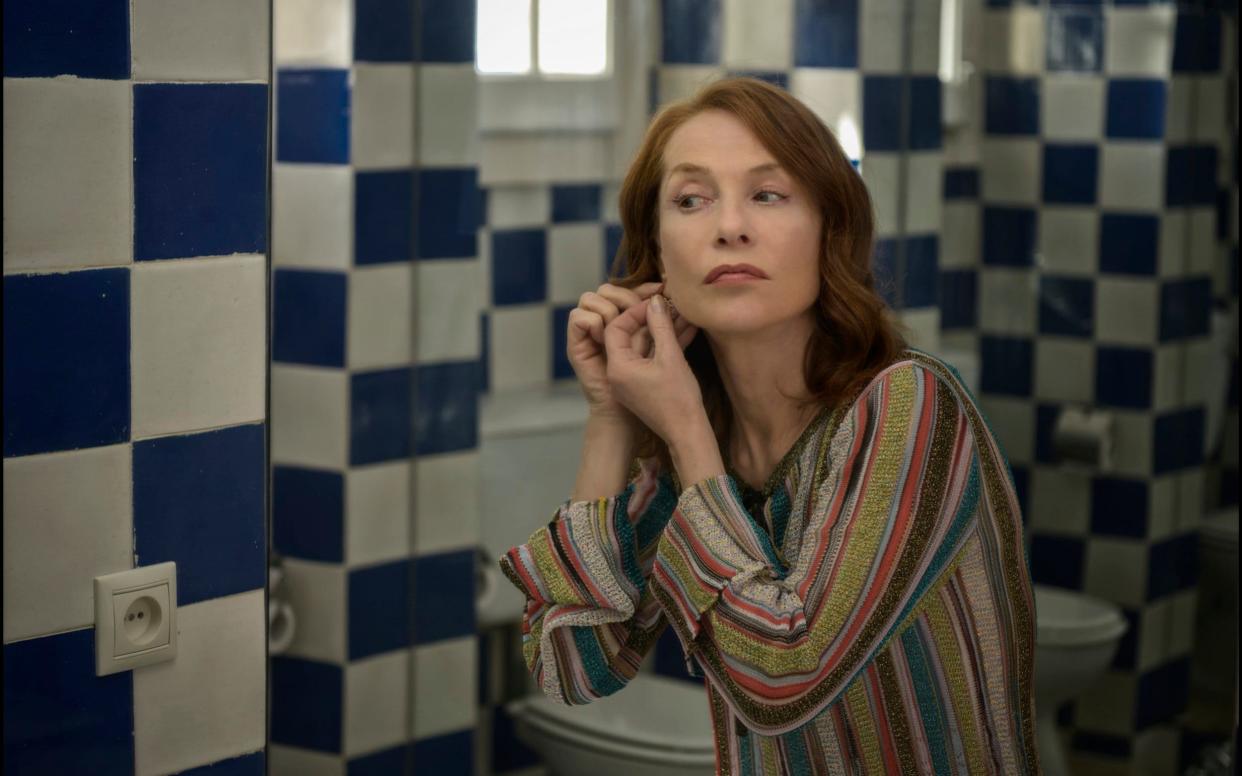Frankie, review: Isabelle Huppert drifts idly through the buzz of family drama

Dir: Ira Sachs. Starring: Isabelle Huppert, Brendan Gleeson, Marisa Tomei, Greg Kinnear, Jérémie Renier, Vinette Robinson, Ariyon Bakare, Pascal Greggory. 12A cert, 100 min
Frankie (Isabelle Huppert) is a well-known French actress who has been given months to live. Her nearest and dearest, including a husband in denial (Brendan Gleeson), a doleful ex (Pascal Greggory), and two squabbling children (Jérémie Renier and Vinette Robinson), are gathered with her in Portugal, on what she clearly intends as a last holiday, to settle some scores and work on resigning themselves to imminent loss.
Everything about Frankie has promise. Huppert is rarely undiscerning; she’s at the head of a fabulous cast; they’re all wearing splendid clothes; and they’re in Sintra, a fairytale locale. Plus, its writer-director, Ira Sachs, has a knack for dramatising modern problems, as we know from his urban relationship dramas 40 Shades of Blue (2005), Love is Strange (2014) and Little Men (2016). Actors queue up to work with him and happily return for more (as Marisa Tomei and Greg Kinnear both do here).
But this is Sachs in Éric-Rohmer-abroad mode, and some way off top form. Frankie suggests a gloriously civilised shoot more than it coheres into much of a film. Unusually for him, it deals in waffly generalities, blocking its dialogue in long takes that often suggest a play; even on stage, it might have seemed like a remote take on inaccessible people. The practical crises in which Sachs’ films have previously majored give way here to a gauzy, introverted melancholy. It isn’t a trade-off that leaves the viewer with a lot to hold on to.
Half the cast come to the rescue, guaranteeing, at least, a pleasant time. Tomei has one of the sketchiest roles, as a hair designer in Hollywood who counts Frankie as one of her closest friends, but she enlivens the part with her quick wit, fending off the doomed advances of Kinnear’s rumpled, doting cinematographer. Gleeson, whose character is in a moping state of premature grief, has a touchingly forsaken quality. It helps that he’s spared too much of the chatter, which has an especially awkward ring in the subplot involving Robinson and her partner (Ariyon Bakare). (Though several of the cast aren’t native English speakers, it’s those testy scenes between unhappy Londoners that sound weirdly as though they’re in another language.)
Somewhere under Frankie is the ghost of a profound idea it keeps trying to shop to us, but Sachs hasn’t shaped his story with enough artistic insight or connection to any reality we know: the nods made by Kinnear’s character to working on a Star Wars set are painful failures in this sense. It all takes place over a single day, and culminates in a showy sunset farewell, photographed from high above the cast on a promontory’s lookout point. While Huppert fills her performance with an intriguing grace, the film hasn’t got close enough to her Frankie, or stayed there long enough, to risk such a god’s-eye payoff. That sea view might be lovely, but Sachs didn’t need these characters looking any more like stick figures.
In cinemas from tomorrow


